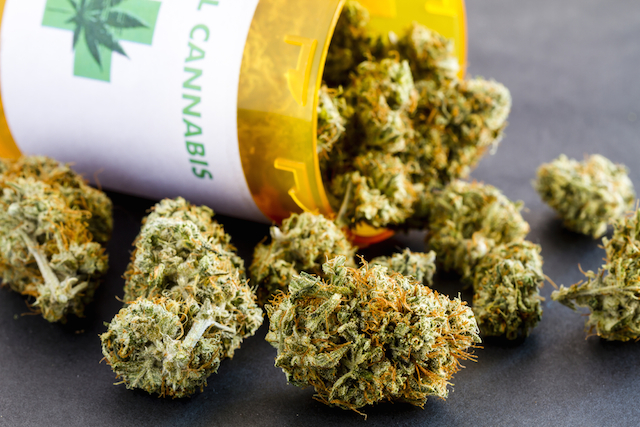Sales Of Medical Weed In Illinois Are So High, No Seriously SO HIGH
By Stephen Gossett in News on Aug 3, 2016 8:46PM
Retail sales of medical marijuana in Illinois climbed to a high in July, reaching $2.9 million—and there’s a chance they could increase even more in the near future, thanks to expanded eligibility and higher-cost (but longer-lasting) identification cards.
Senate Bill 10, which was passed in early July, extends the list of qualifying conditions to include post-traumatic stress disorder and terminal illness. The law also extended the Medical Cannabis Pilot Program through 2020. Doctors are also no longer required to explicitly recommend medical marijuana to a patient; they must only confirm an eligible condition—a change reflected in new forms released this week by the Illinois Department of Public Health.
Under the new law, ID cards now cost $300 and are valid for three years, rather than the previous system of an annual $100 fee. It washes out in the end, of course, but the change could have a two-pronged effect: a possible increase in near-future revenue coupled with any offsets from a steeper immediate out-of-pocket cost.
Dan Linn, Executive Director of the Illinois Cannabis Patients Association, says the new pricing structure “could be a hurdle.” “It shifts the burden up front,” he told Chicagoist. “Obviously many patients suffer from debilitating conditions, might have low income, or may not be working. There’s a certain expectation that when you pay upfront you’ll see a price break.”
Linn said he’d also like to see the pilot program go further. “It should be made permanent. Also, the felony disqualification ought to be removed; more should be done to educate the medical community; and Illinois should advocate for a change in federal law that would allow insurance companies to cover the cost.”
The ultimate solution, he argues, is recreational legalization. “I don’t think there’s a problem with the pilot program that wouldn’t be solved by [recreational legalization], whether it’s finger-printing or identification-card costs. A recreational market would likely lower the cost of medical cannabis and save patients money.”
Given Gov. Bruce Rauner’s incrementalism, that doesn’t seem likely any time soon. But the recent sales figures and gradual expansion of the program arguably illustrate a growing public acceptance.
[H/T AP]
